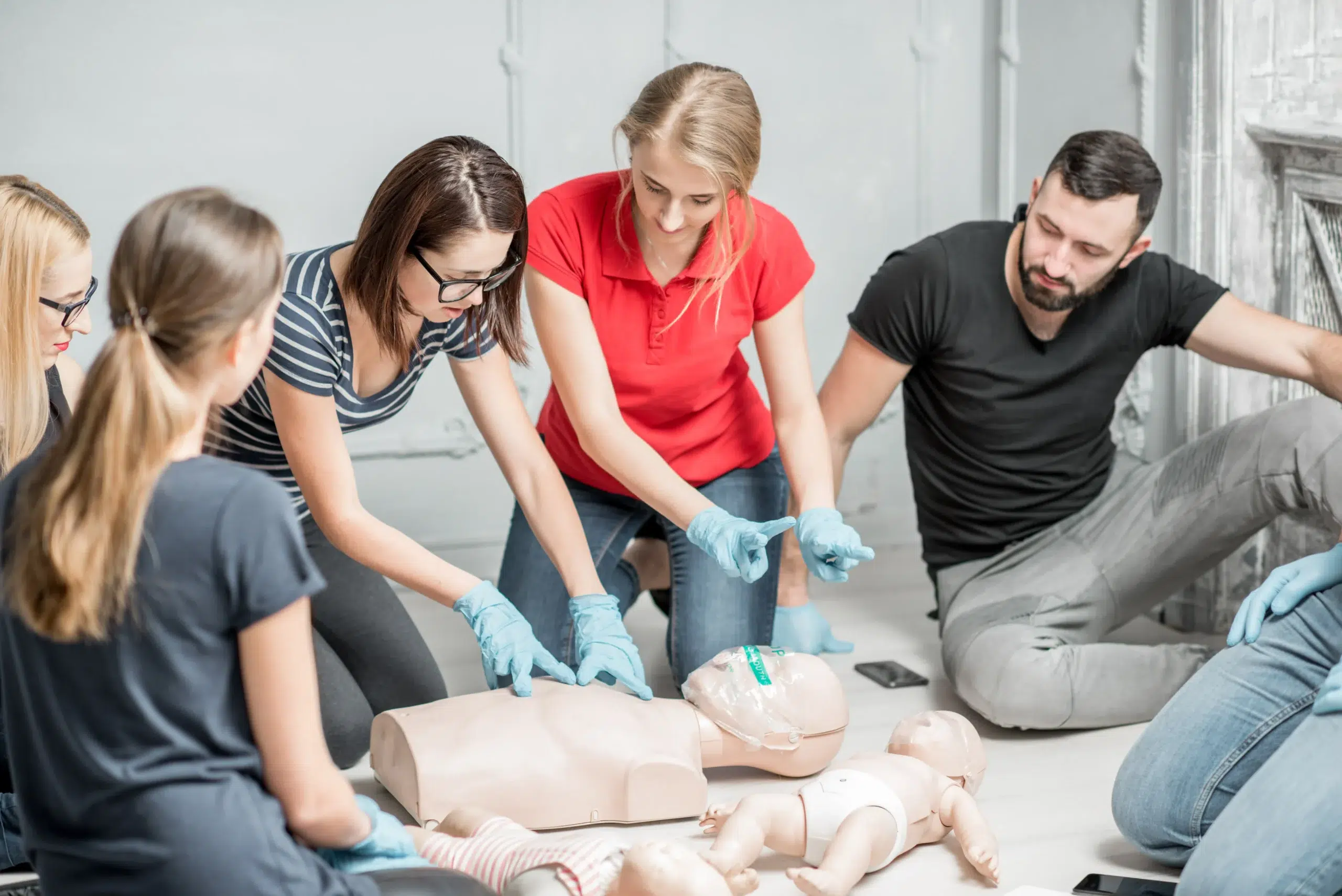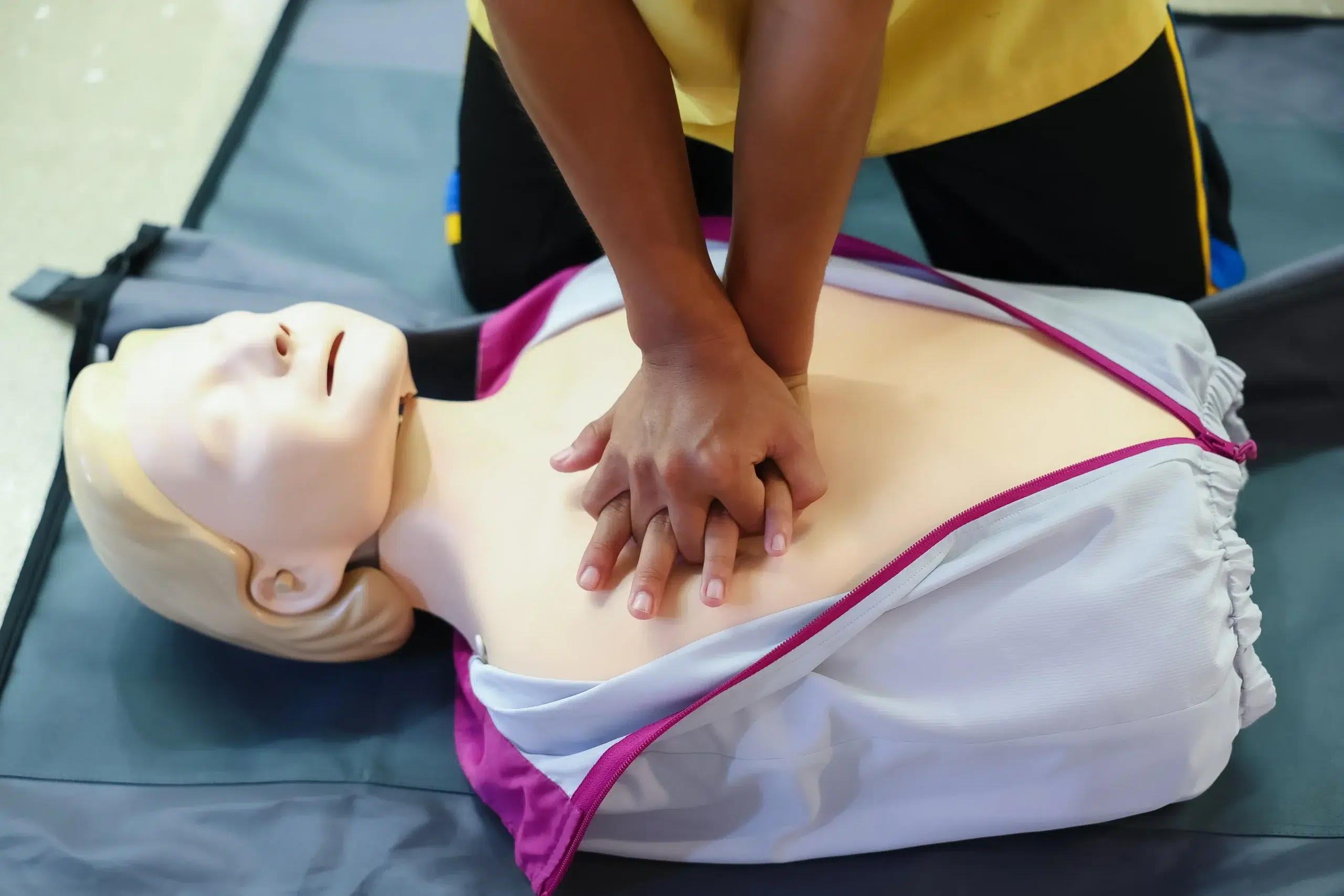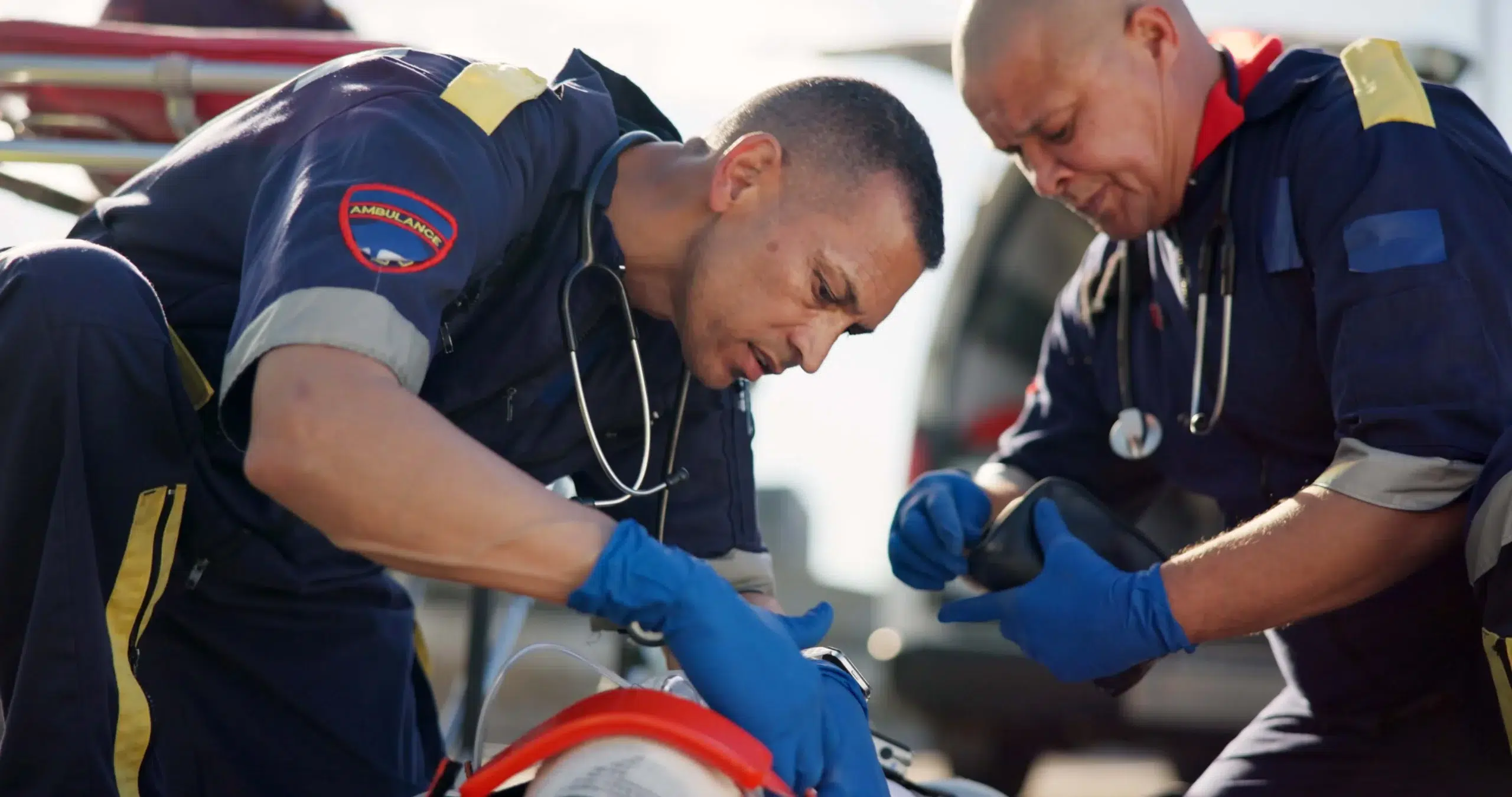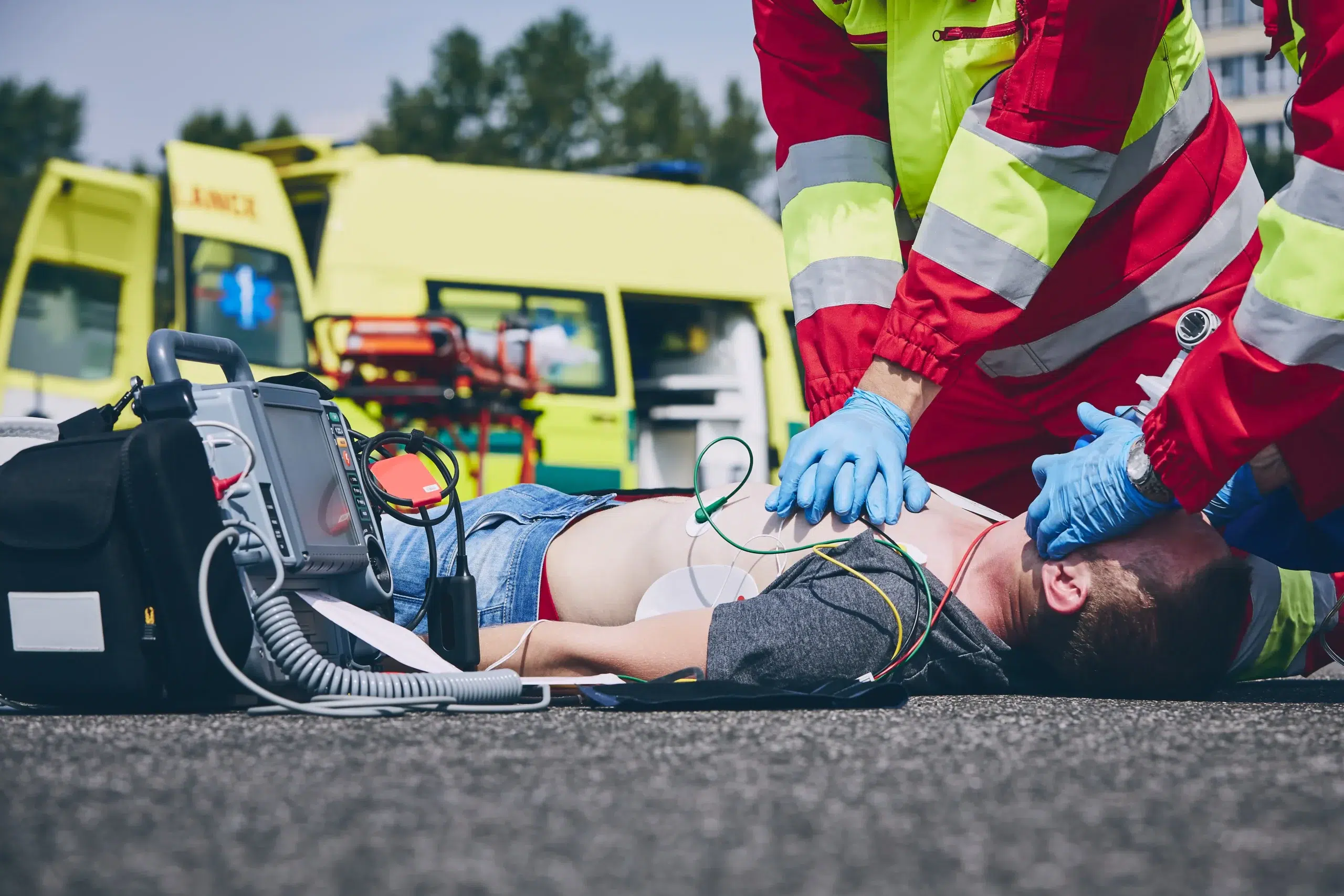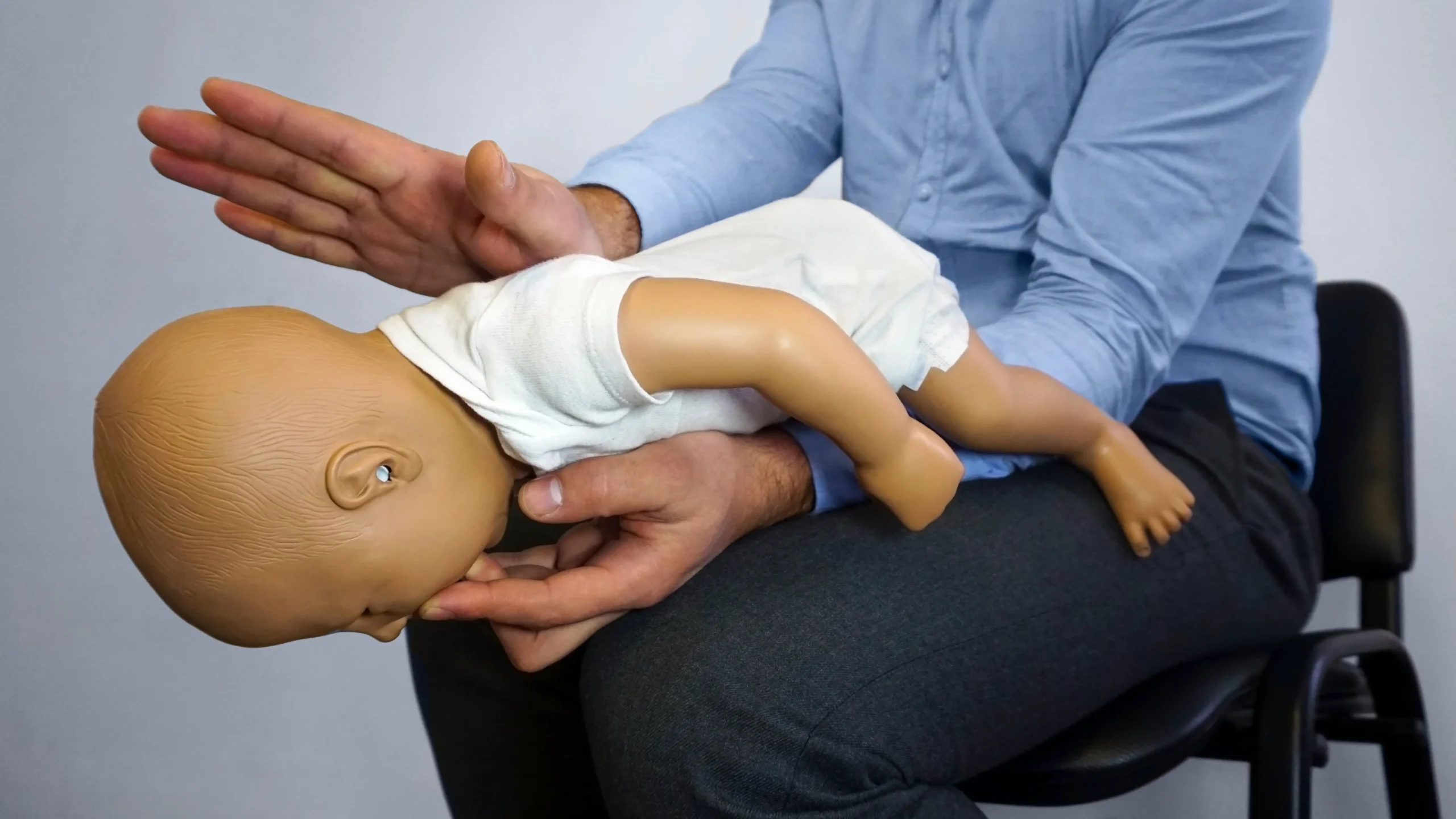Living in the Greater Newark area and thinking about a career in healthcare? EMSA courses in Newark could be your perfect starting point. The Emergency Medical Services Authority (EMSA) offers comprehensive training programs that prepare you to become a certified Emergency Medical Technician (EMT). This post will cover everything from the basics of EMSA training to the career opportunities that await you after certification. We’ll explore the curriculum, application process, costs, and financial aid options, providing a complete overview of what it takes to become an EMT in Newark. If you’re ready to learn more about this exciting career path, let’s dive in.
Key Takeaways
- EMSA training equips you for a career in emergency medical services: Covering everything from basic to advanced life support, these courses prepare you for diverse roles and advancement opportunities. Explore programs and funding to find your best fit.
- The Newark EMS Corps offers a unique advantage: This program provides paid training, mentorship, and job placement support, specifically designed for young adults in the Greater Newark area.
- Preparation is essential for EMSA course success: Ensure you meet all requirements, gather necessary documents, and prepare yourself physically and mentally for the rigorous training. Research program costs and explore financial aid to plan accordingly.
What are EMSA Courses?
The Newark Emergency Medical Services Authority (EMSA) program is a rigorous academy designed to train aspiring emergency medical professionals. This program focuses on developing skilled EMTs from within the community, ready to serve the Newark area. The EMS Corps also prioritizes increasing diversity within the EMS field, ensuring the workforce reflects the community it serves. Learn more about their mission at the Newark EMS Corps website.
Core EMSA Training Components
EMSA training is comprehensive. It includes EMT training provided by RWJBarnabas Mobile Health, along with life coaching, mentorship, and job readiness training. The curriculum also includes a physical fitness component to prepare participants for the demands of the field. This multifaceted approach prepares participants for a successful career in emergency medical services. The curriculum covers everything from basic patient assessment to advanced emergency care techniques, ensuring trainees are ready to handle real-world challenges.
EMSA Course Skills
EMSA courses equip students with the critical skills needed for thorough patient assessments in emergencies. These skills are the foundation of effective emergency response. For example, Emergency Medical Responders (EMRs) learn to initiate immediate lifesaving care for critical patients, developing the ability to make quick decisions and take action under pressure. Regular training also helps EMS professionals hone their clinical skills and perform critical procedures proficiently, maintaining the highest standards of care. You can explore more information on EMR training at Impact EMS. For a broader look at EMS and professional development, visit Critical Skills Education.
Who Can Enroll in Newark EMSA Courses?
Want to become an Emergency Medical Technician (EMT) and make a difference in your community? The Newark EMS Corps offers an excellent pathway to launch your EMS career. This section breaks down who can enroll in their EMSA courses, covering age, education, residency, and other important qualifications.
Age and Education Requirements
The Newark EMS Corps program welcomes young adults passionate about entering the EMS field. Applicants must be between 18 and 26 years old. A high school diploma or equivalent is also required. These requirements ensure candidates possess a solid educational base for the training program. Check out the Newark EMS Corps website for more details on eligibility.
Residency and Other Qualifications
In addition to age and education, residency is key. The program focuses on residents of the Greater Newark area to cultivate local talent and strengthen the community’s emergency medical services. A valid driver’s license is essential for EMT work, so applicants must have one. The Newark EMS Corps is committed to increasing diversity in EMS and encourages all eligible young adults in the area to apply. The program provides comprehensive training and assists graduates in finding employment, creating a smooth transition into a rewarding career. Learn more about their mission and community impact on the Newark EMS Corps website.
Newark EMSA Course Structure and Duration
Course Formats: In-Person and Hybrid
EMSA courses in Newark offer flexible learning options, including traditional in-person classes and blended learning formats. Blended learning combines online modules with in-person skills sessions, providing a convenient way to complete the coursework. You’ll typically spend 5–6 hours on the online portion, then attend a shorter in-person session for hands-on training and assessment. This blended approach allows students to learn at their own pace while still receiving the crucial hands-on experience necessary for EMSA certification. Many providers cater to diverse schedules and learning preferences.
Typical Course Length and Schedule
While the exact duration and schedule vary depending on the specific program and provider, EMSA courses are designed to be comprehensive yet manageable. BLS Instructor-led courses, for example, cover both single-rescuer and team basic life support skills, focusing on high-quality CPR and team dynamics. These courses prepare students for prehospital and in-facility environments, ensuring they have the skills to respond effectively in various emergency situations. You’ll find courses scheduled throughout the week, with options for daytime, evening, and weekend classes to accommodate busy schedules. Check with specific training centers in Newark for their course calendars and available schedules.
EMSA Course Curriculum
EMSA courses cover a wide range of topics to prepare you for a career in emergency medical services. From basic life support to advanced techniques, the curriculum is designed to build a strong foundation and equip you with practical skills. This training is essential for anyone considering a career as a first responder or healthcare provider.
Emergency Medical Techniques
EMSA courses introduce fundamental emergency medical care. You’ll learn how to assess a patient’s condition, manage airways, and provide basic life support. The curriculum covers various medical emergencies, including trauma and pediatric care. These courses often align with the guidelines for national EMT certification, giving you the skills you need to pursue certification and start your career. Topics like preparing for an emergency, patient assessment techniques, and operational procedures are also included. For a clearer picture of what to expect, take a look at Wake Tech’s emergency medical science program.
Patient Assessment and Care
A key focus of EMSA training is patient assessment and care. You’ll learn how to quickly evaluate a patient’s condition, identify life-threatening issues, and provide immediate care while waiting for paramedics or other medical personnel. This includes learning how to stabilize patients and perform essential interventions. Critical Skills Education highlights the importance of these skills for initiating lifesaving care in critical situations. This rapid assessment and care can significantly impact patient outcomes.
Advanced Life Support Training
Many EMSA courses also include advanced life support training. This builds upon the basic skills you’ve learned, teaching you more complex procedures and techniques. Regular practice is essential for maintaining these skills, especially under pressure. Paramedic Flash emphasizes the importance of knowledge retention and proficiency in performing critical procedures. This advanced training can be crucial for career advancement and providing a higher level of care.
Applying to EMSA Courses
Required Documents and Application Steps
Applying for EMSA courses in Newark is a straightforward process designed to ensure candidates are prepared for the training. According to the Newark EMS Corps, applicants must be between 18 and 26 years old, live in the Greater Newark area, and have a high school diploma or equivalent. A valid driver’s license is also a must. These requirements help ensure candidates are ready for the rigorous training and responsibilities of an Emergency Medical Technician (EMT).
The Newark EMS Corps offers a five-month, paid training program specifically designed for young adults in this age range living in the Greater Newark area who want to become EMTs. To apply, visit the Newark EMS Corps website and locate the application link, prominently displayed on their homepage.
Application Tips
Before applying, gather all the required documents and confirm you meet the eligibility criteria. The program places a strong emphasis on passing the NREMT certification exam on the first attempt, which demonstrates a commitment to the training.
For the most up-to-date information on EMT classes, download the course catalog or contact the program directly at (888) 724-7123. Staying informed will make the application process smoother and help you prepare for a fulfilling EMS career.
EMSA Course Costs and Finances
One of the first questions aspiring EMTs ask is, “How much does EMT training cost?” Understanding program fees and exploring available financial aid is crucial for planning your EMS education.
Program Fees and Expenses
EMSA program costs vary by training center and location. Some programs, like the one at Atlantic Mobile Health’s Atlantic Training Center, cost $1,500 (plus textbooks). Others can range between $2,000 and $3,000, not including books and fees. Gloucester County, NJ offers helpful information illustrating these cost differences. Research specific programs in your area to get accurate pricing.
Paid Training and Financial Aid
While EMSA training costs can seem daunting, some programs make it more accessible. The Newark EMS Corps offers a five-month paid training program for young adults (ages 18-26) in the Greater Newark area. This program provides a stipend and focuses on increasing representation in emergency medical services through youth development, mentorship, and job training. They even help graduates find jobs afterward. If you’re in the eligible age range and looking for a financially supportive path, this could be a great option. Also, explore scholarships, grants, and payment plans offered by various training centers.
Career Opportunities After EMSA Certification
Getting your EMSA certification is a big step, but what happens after you’re certified? This certification paves the way for a rewarding career in emergency medical services, especially in the Newark area. Let’s explore the job opportunities and potential career paths you can consider.
Newark Area Job Prospects
Newark, New Jersey, is a growing job market for EMS professionals. Several local initiatives aim to increase the number of qualified EMTs in the area. The EMS Corps program, for example, offers a five-month paid training program for young adults in the Greater Newark area. This program not only covers your training costs but also connects participants with jobs after certification. This focus on training and job placement makes Newark a great place to start an EMS career. Beyond programs like the EMS Corps, the demand for emergency medical services is steadily increasing, creating many job openings for certified EMTs across the city.
Potential Roles and Advancement
Your EMSA certification qualifies you for a range of roles in emergency medical services. Entry-level Emergency Medical Technician positions offer a strong foundation and valuable on-the-job experience. From there, you can advance to roles like Paramedic or even management positions such as Emergency Services Manager. You’ll find frequent openings for EMTs, Operators, and other support roles within Newark area healthcare facilities. Plus, your EMSA certification can help you pursue specialized training in areas like critical care transport or tactical EMS. You could even take on leadership roles within emergency services. These specializations can boost your career and earning potential. With hard work and continued learning, a fulfilling and exciting career awaits in emergency medical services.
EMSA Certification and Licensing
National EMT Certification
To become a certified Emergency Medical Technician (EMT), you must complete a program that prepares you for the National Registry EMT exam. This certification is essential for anyone wanting to work in emergency medical services, as it validates your ability to provide pre-hospital care. The EMT-Basic course gives you a strong foundation in the practical skills and essential knowledge needed for effective emergency response.
New Jersey State Requirements
New Jersey has specific requirements for EMT certification. The NJ EMT Training Fund may help with tuition costs for some students. Some programs, like those offered by Gloucester County EMS, require a three-year service commitment after graduation. This ensures newly certified EMTs contribute to their local communities. Generally, to qualify for EMT training in New Jersey, you’ll need to be between 18 and 26, live in the Greater Newark area, have a high school diploma or equivalent, and hold a valid driver’s license. For more on local opportunities, check out the Newark EMS Corps.
Benefits of Newark EMSA Courses
Hands-On Training and Experience
EMSA courses in Newark prioritize practical experience. The Newark EMS Corps, for example, offers an intensive, paid training program with over 190 hours of hands-on learning. This immersive approach lets aspiring EMTs apply their knowledge in realistic scenarios, building confidence and competence. From basic patient assessment to complex emergency care techniques, the curriculum emphasizes practical application. This focus on real-world experience ensures graduates are prepared for the demands of emergency medical services.
Mentorship and Professional Development
Newark EMSA courses recognize the importance of professional growth beyond technical skills. Many programs, such as those offered by LifeLine EMS, incorporate mentorship as a core element. Pairing new EMTs with seasoned professionals provides invaluable guidance and support. These mentors offer practical advice, share their experiences, and help new EMTs navigate the challenges of working in EMS. Mentorship programs can include shadowing opportunities, clinical supervision, and career advising, creating a well-rounded learning experience that fosters both personal and professional development. This supportive environment helps build confidence and ensures new EMTs have the resources they need to succeed.
Preparing for Your EMSA Course
Getting ready for an EMSA course involves more than just registering. It requires physical and mental preparation, along with having the right equipment. Think of it as preparing for a marathon—you wouldn’t arrive without the right shoes and conditioning. Here’s how to get ready:
Physical and Mental Readiness
EMSA courses are demanding. You’ll learn life-saving techniques and practice them in realistic scenarios. This requires a certain level of physical fitness. While you don’t need to be an athlete, being comfortable with activities like lifting, bending, and kneeling is important. Regular exercise can improve your stamina and prepare you physically for the demands of EMS work.
Mental preparedness is equally important. EMSA professionals often encounter high-pressure situations requiring quick thinking and decisive action. Developing focus and resilience will help you absorb information effectively and apply it under stress. The goal is to build knowledge retention, essential in critical situations. Consider adding mindfulness practices or stress-reduction techniques to your routine to build mental stamina.
Essential Equipment and Materials
Some EMSA courses require specific equipment and materials. Check with your chosen training center for a complete list, but generally, you’ll need comfortable clothing suitable for active movement. Closed-toe shoes are essential. A notebook and pen are crucial for taking notes during lectures and practical sessions.
Depending on the course level, you might also need specific medical supplies. For instance, a basic CPR and first-aid course might require items like bandages, gloves, and a face shield for practicing rescue breaths. More advanced courses, like BLS, may involve equipment like bag valve masks and AED trainers. Having your own supplies can enhance your learning and allow for extra practice outside of class.
Related Articles
- EMSA Child Care Health & Safety – Newark CPR Classes
- Pediatric Advanced Life Support (PALS) in Newark – Newark CPR Classes
- BLS Classes in Newark: Your Guide – Newark CPR Classes
- Find BLS Training Near Me: Top Providers & Courses – Newark CPR Classes
- CPR Certification in Newark: Your Complete Guide – Newark CPR Classes
Frequently Asked Questions
What’s the difference between EMSA and regular CPR/First Aid training?
EMSA courses prepare you for a career in emergency medical services, encompassing a broader range of skills and knowledge than standard CPR/First Aid certification. While CPR and First Aid are essential components of EMSA training, EMSA goes further, equipping you with the skills to assess patients, manage various medical emergencies, and provide a higher level of pre-hospital care. CPR/First Aid certification is valuable for anyone, while EMSA training is specifically for those pursuing a career as an EMT or paramedic.
How can I find out more about EMSA programs near me?
Start by checking the Newark EMS Corps website. They’re a great resource for local programs and can provide guidance on training options in the Newark area. Also, look into local community colleges and hospitals, as they often offer EMSA courses. Don’t hesitate to contact training centers directly – they can answer your specific questions about curriculum, schedules, and costs.
I’m interested in becoming an EMT, but I’m worried about the cost. What financial assistance is available?
The Newark EMS Corps offers a paid training program, which is a fantastic opportunity for eligible candidates. Beyond that, explore scholarships and grants specifically for EMS training. Many training centers also offer payment plans to make the cost more manageable. Researching these options early in your planning process can alleviate financial concerns and make your EMT career goals more attainable.
What are the career prospects like after completing an EMSA program?
The demand for qualified EMTs and paramedics is growing, making it a promising career choice. Completing an EMSA program opens doors to various roles, from entry-level EMT positions to more specialized roles like critical care transport or tactical EMS. With experience and further education, you can advance to leadership positions within emergency medical services.
Is EMSA training physically demanding?
Yes, EMSA training involves hands-on learning and simulations that can be physically demanding. While you don’t need to be an athlete, a reasonable level of fitness is helpful. The training often involves lifting, bending, and other physical activities. Regular exercise before starting the program can help you prepare and make the training more manageable.
